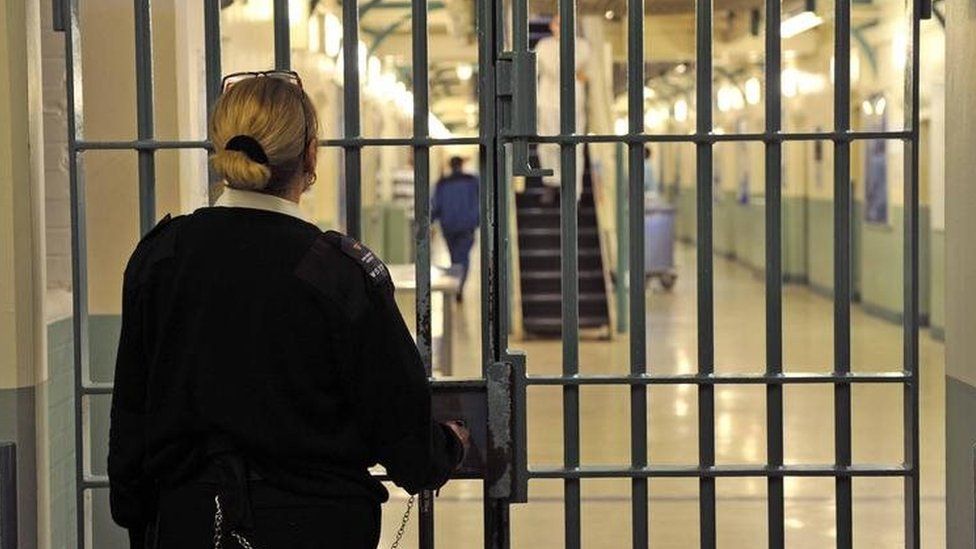Probation reforms: Numbers returning to prison 'skyrocket'
- Published

Problems with the partial privatisation of the probation system in England and Wales have cost taxpayers almost £500m, the government spending watchdog says.
Under the changes, which began in 2013, firms were given contracts to supervise low and medium-risk offenders.
The National Audit Office said reforms were "rushed" and the numbers returning to prison for breaching their licence conditions had since "skyrocketed".
The government said this was because more offenders were being monitored.
Prior to the reforms, which were designed to drive down re-offending rates, convicts who had served less than one year did not have to be supervised by probation services.
But from 2015 every criminal given a custodial sentence became subject to statutory supervision and rehabilitation upon release into the community.
The Ministry of Justice (MoJ) said this meant an extra 40,000 offenders were being supported each year.
The NAO report said that between January 2015 and September 2018, the number of offenders recalled to prison for breaching their licence condition increased by almost half, from 4,240 to 6,240.
Over the same period, the percentage of offenders recalled to custody who had received sentences of less than 12 months increased from 3% to 36%.
The NAO said the MoJ had "set itself up to fail" after it used a payment-by-results model which was "inappropriate" for probation services.
BBC home affairs correspondent Danny Shaw said the "scathing" report raised "serious questions about decision-making at the Ministry of Justice".
'Ineffective'
In 2013 the MoJ began a major reform of probation services, partially privatising it in England and Wales.
It involved 21 companies - known as community rehabilitation companies (CRCs) - monitoring people who had been released from jail after serving short sentences.
But the report says the MoJ designed and implemented its reforms too quickly.
By March 2018, the CRCs were facing losses of £294m over the lifetime of their contracts - compared with the profits of £269m they had been expecting to start with.
Four months later, the government acknowledged that the quality of probation services being delivered was not good enough and announced the MoJ would end the contracts with the CRCs in 2020 - 14 months early.
The report estimates that additional payments to CRCs beyond the original terms of the contracts will cost the department £296m, and terminating the contracts early will cost at least £171m.
The full cost to the taxpayer will not be known until at least December 2020, the report says.
It concludes that the MoJ's contracts were "ineffective" and hampered its ability to hold providers to account for poor services.
Overall, it noted "little progress" had been made on transforming probation services.
Rory Stewart, prisons and probation minister, said the performance of CRCs was "too often deeply disappointing".
"That is why we have stepped in to end contracts early and invested an extra £22m a year in services for offenders on release," he said.
'Botched' contracts
Meg Hillier, who chairs the Commons Public Accounts Committee which scrutinises the value for money of public spending, said the MoJ's "botched contracting" had left this "essential service" underfunded.
"The ministry now needs to reflect and ensure that its new proposals can deliver the much-needed improvements to probation services," she added.
Katie Lomas, chair of the probation officers union Napo, said bringing in providers with no experience in probation and splitting the service into two separate organisations was always going to bring additional costs.
She told the BBC that the government should "pause and reflect" before enacting further reforms to ensure the same mistakes were not repeated.
The chief inspector of probation, Dame Glenys Stacey, welcomed the NAO report, for bringing "greater transparency" to probation funding and contracts.
- Published27 July 2018